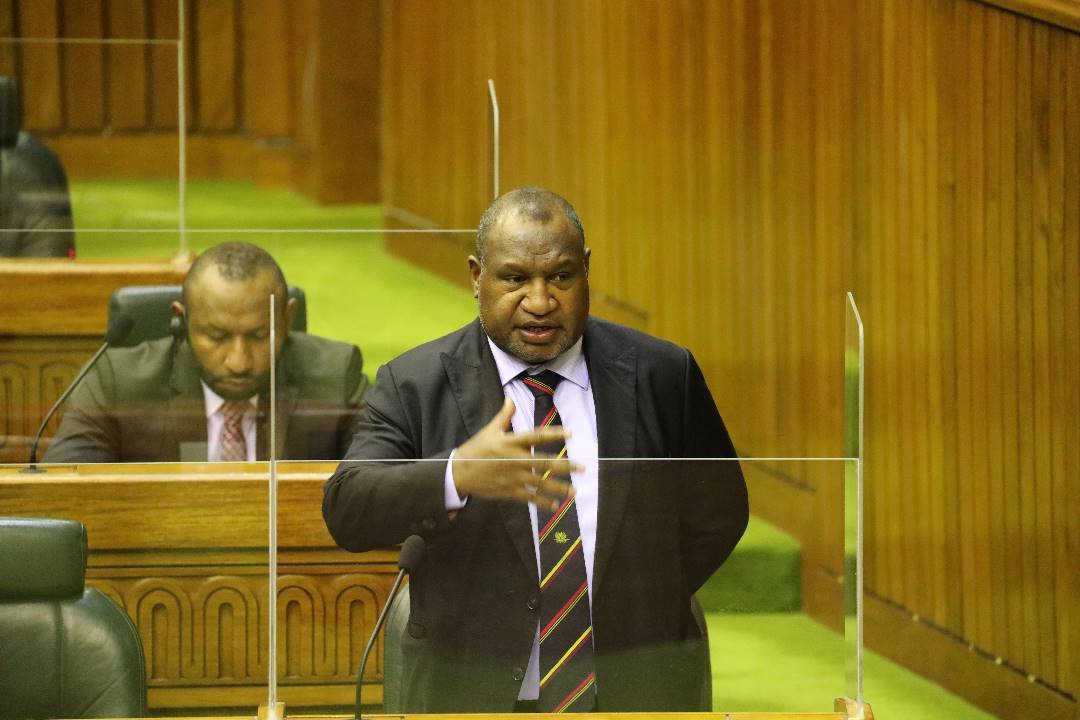In a pivotal session of Parliament on Wednesday, August 9, 2023, Prime Minister and Acting Health Minister Hon. James Marape highlighted the imperative need for contemporary adjustments to health administration practices. Prime Minister Marape acknowledged the substantial evolution within the healthcare sector over the years and underscored the necessity for updated legislation to align with these transformations.
The occasion marked the introduction of the National Health Administration (Amendment) Bill 2023, a significant legislative proposition that garnered unanimous endorsement from the assembly. The National Health Administration Act of 1997, enacted at a juncture when health systems were vested within Provincial Governments according to the Organic Law on Provincial and Local Level Government, was the initial legal foundation for the health sector’s governance.
Prime Minister Marape emphasised the noticeable shifts since 1997 that have rendered the existing act obsolete and in need of revision. He conveyed, “Since 1997, there have been significant changes to the administration of health in Papua New Guinea.” Prime Minister Marape emphasised that the Provincial Health Authorities Act of 2007 transferred health system responsibility to provincial health authorities through an agreement between the Health Minister and provincial governors, a reform unforeseen by the NHA Act 1997.
The governance of health has been underscored by the prevailing challenges presented by the COVID-19 pandemic. The independence of the National Health Board as delineated by the NHA Act 1997, its interconnections with the Provincial Health Authorities Board, and the harmonisation of ongoing Provincial Health Authority reforms with the existing NHA Act, have collectively emerged as formidable obstacles for both the Health Department and Provincial Health Authorities.
Prime Minister Marape iterated, “These challenges pose a threat to the health care system and its operation, therefore, require urgent realignment of health system laws and health service delivery whilst the broader issues are considered under the review of health system laws that is currently on foot.”
The comprehensive evaluation of health system laws, including the National Health Administration Act 1997, Provincial Health Authorities Act 2007, and Public Hospital Act 1995, and their interconnected legislation, is an integral part of this overarching reform process. The objective is to rectify any disparities within health system laws and establish a well-defined legislative framework that will effectively facilitate the implementation of the National Health Plan 2020-2030.
Prime Minister Marape outlined the proposed amendments, each aimed at streamlining health administration and service delivery:
- Refinement of the definition of the health care system.
- Adjustment of membership composition within the National Health Board.
- Inclusion of co-opted members within the National Health Board.
- Enhancement of functions and powers held by the National Health Board.
- Clarification of roles assigned to Provincial and District Administrators.
- Revision of grant conditions.
- Specification of the roles of Chairman and Deputy Chairman.
- Strengthening of committee structures.
- Authorisation for the Health Minister to initiate investigations.
- Validation of the legitimacy of the National Health Administration (Amendment) Bill 2023.
- Facilitation of health service decentralization.
- Consideration of political implications.
Prime Minister Marape stressed the pressing need for these amendments to reinforce the stewardship roles and responsibilities of key entities within the health sector, including the Secretary of Health, Department of Health, National Health Board, and Provincial Health Authority Boards. This recalibration, in conjunction with the alignment of health system laws and health service delivery, is pivotal to ensuring the efficacy of the health care system as well as the successful realisation of the National Health Plan 2020-2030.






